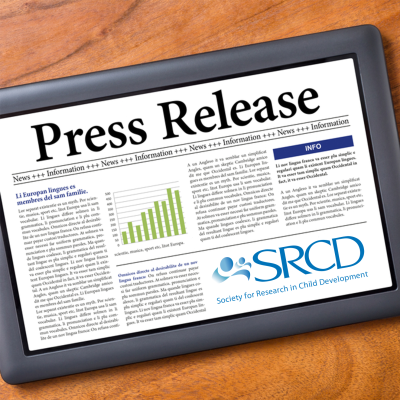Civic Engagement in Adolescence and Young Adulthood Largely Beneficial for Adult Development
PRESS RELEASE / CHILD DEVELOPMENT: Embargoed for Release on January 23, 2018
Adolescents and young adults are encouraged to get involved in their communities through voting, volunteering, or becoming active in a cause. A new study sought to determine whether civic engagement during adolescence and young adulthood promotes better health, education, and income over the course of adulthood. The study found a pattern of positive associations of voting and volunteering with these important aspects of adult development, but a mix of positive and negative outcomes in adulthood for activism as a form of civic engagement.
The study was conducted by researchers at Wake Forest School of Medicine, Fordham University, and the University of Massachusetts, Amherst. It appears in the journal Child Development.
“Engaging in civic life is worthwhile for many reasons,” suggests Parissa J. Ballard, assistant professor of family and community medicine at Wake Forest School of Medicine, who led the study. “It can build community, fulfill social needs, change policies, and ensure a healthy democracy. Our study suggests that civic engagement is also generally good for the people involved, although there are some exceptions to the pattern.”
The study used nationally representative data from the National Longitudinal Study of Adolescent to Adult Health to estimate how civic engagement was associated with outcomes among 9,471 adolescents and young adults (ages 18 to 26). Outcomes examined included socioeconomic status (e.g., educational attainment, personal earnings, household income) as well as mental and physical health (e.g., symptoms of depression, risky health behaviors, metabolic markers). Participants included youth from all ethnic/racial and socioeconomic backgrounds. By using analytical methods that account for many of the factors influencing why teens and young adults chose to take part in different forms of civic engagement, the study improved estimations of causality.
The researchers looked at three types of civic engagement—voting, volunteering, and activism. All three were associated positively with subsequent income and education level. Volunteering and voting were associated with better mental health and fewer risky health behaviors (such as substance use and unhealthy eating habits), but not physical health. Activism, while associated with higher income and educational attainment, was also associated with more risky health behaviors in adulthood (such as substance use).
“Adolescents and young adults should take advantage of meaningful opportunities for civic engagement,” notes Lindsay Till Hoyt, assistant professor of psychology at Fordham University, who coauthored the study. “Many types of civic engagement may be positive for young people by contributing to their educational and income trajectories. It remains to be seen why volunteering and voting were related over time to positive mental health and health behavior, while activism was related to more risky health behaviors in adulthood. One possibility is that youth who engage in activism may feel frustrated when things are slow to change.”
The study was funded by the Maternal and Child Health Bureau, Health Resources and Services Administration of the U.S. Department of Health and Human Services under a cooperative agreement with the University of California San Francisco Adolescent and Young Adult Health Research Network, as well as the Robert Wood Johnson Foundation. Data from the National Longitudinal Study of Adolescent to Adult Health were licensed to the team by the University of North Carolina through the University of Massachusetts, Amherst.
###
Summarized from Child Development, Impacts of Adolescent and Young Adult Civic Engagement on Health and Socioeconomic Status in Adulthood by Ballard, PJ (Wake Forest School of Medicine), Hoyt, LT (Fordham University), and Pachucki, MC (University of Massachusetts, Amherst). Copyright 2018 The Society for Research in Child Development, Inc. All rights reserved.


